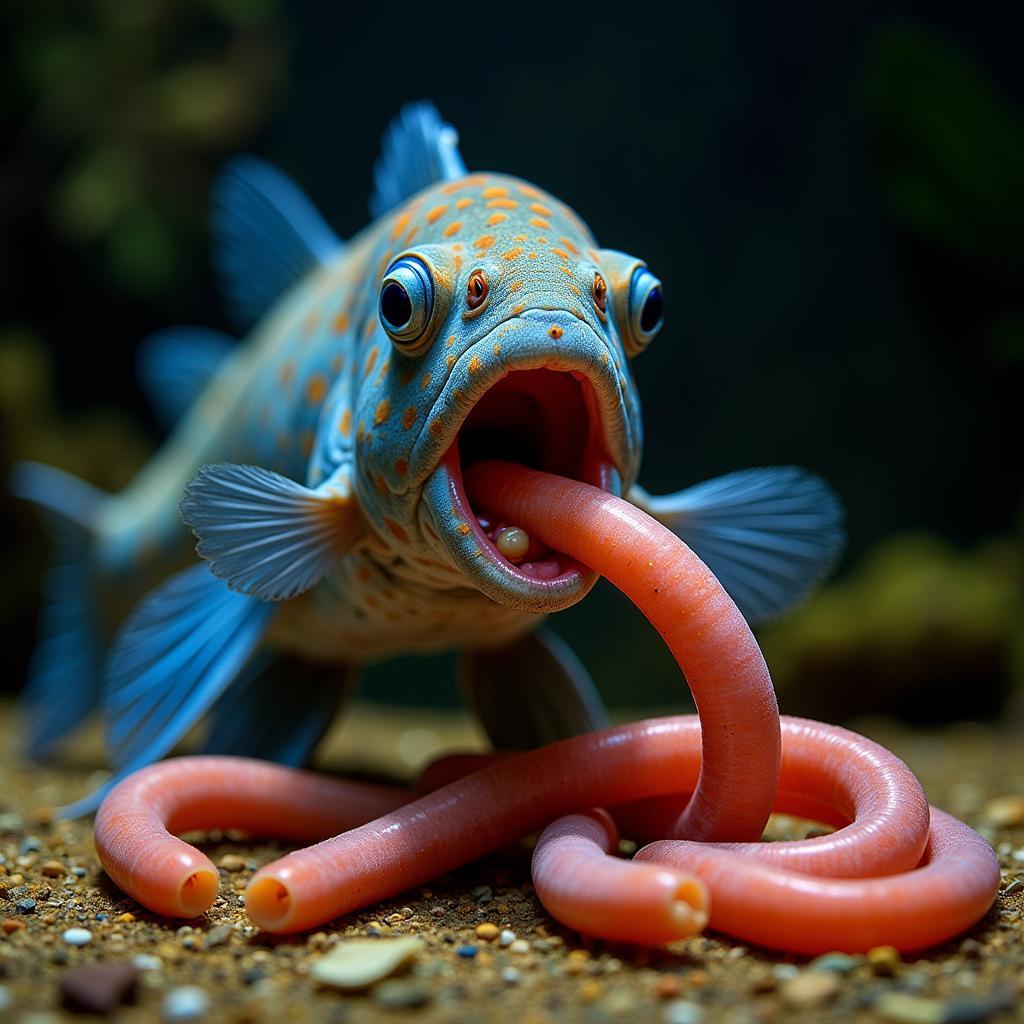African Jewel Fish Size: A Comprehensive Guide
The African jewel fish, also known scientifically as Hemichromis bimaculatus, is a popular freshwater aquarium fish prized for its vibrant colors and engaging personality. But how big do these captivating creatures actually get? Potential owners often wonder about the African Jewel Fish Size, as this factor is crucial in determining the appropriate tank size and environment for their well-being.
Understanding African Jewel Fish Growth and Size
In a home aquarium, the average African jewel fish size reaches around 4-5 inches (10-13 cm). However, with ample space and optimal care, they can grow slightly larger, with males occasionally reaching up to 6 inches (15 cm) in length. Females tend to be smaller than males, usually topping out at around 4 inches (10 cm).
Several factors can influence the size of your African jewel fish:
- Genetics: Just like humans, some fish are genetically predisposed to grow larger than others.
- Diet: A balanced and protein-rich diet is essential for healthy growth. Live or frozen foods such as brine shrimp, bloodworms, and daphnia are excellent options.
- Water Conditions: Maintaining pristine water conditions with regular water changes and appropriate filtration is crucial. The ideal water temperature for African jewel fish is between 75-82°F (24-28°C).
- Tank Size: Providing adequate space is paramount. Overcrowding can lead to stunted growth and aggression.
Choosing the Right Tank Size for Your African Jewel Fish
When considering African jewel fish size, it’s crucial to choose an appropriately sized tank. A single African jewel fish requires a minimum tank size of 20 gallons. However, because they are naturally territorial, a larger tank is always recommended, especially if you plan on keeping more than one. A 30-gallon tank is a good starting point for a pair, and for each additional jewel fish, it’s best to add an extra 10 gallons.
African Jewel Fish Tank Mates: Size and Temperament Matter
African jewel fish are known for their feisty and territorial nature, especially during breeding season. While they can coexist peacefully with other fish of similar size and temperament, careful consideration is required when selecting tank mates. Avoid small, peaceful fish as they may be viewed as prey.
Here are some potential tank mate options for African jewel fish, keeping in mind that compatibility can vary:
- Other African Cichlids: Choose species of similar size and temperament, avoiding overly aggressive or overly passive tank mates. Learn more about different African cichlid profiles.
- Large Barbs and Danios: These active fish can hold their own against the sometimes-territorial jewel fish.
- Catfish: Certain catfish species, particularly those that dwell on the bottom of the tank, can coexist peacefully with African jewel fish.
African Jewel Fish Size: A Sign of Health
Monitoring your African jewel fish’s growth is a good indicator of their overall health and well-being. A sudden decrease in growth rate or noticeable weight loss can be a sign of illness or stress.
“Observing your African jewel fish’s growth patterns is just as important as regular water testing,” says Dr. Abena Osei, an aquatic veterinarian specializing in cichlids. “Changes in growth can often be the first sign of an underlying issue.”
 African Jewel Fish Feeding on Bloodworms
African Jewel Fish Feeding on Bloodworms
Conclusion: Providing the Best Care for Your African Jewel Fish
Understanding the expected African jewel fish size is essential for responsible fishkeeping. By providing a spacious tank, a balanced diet, suitable water conditions, and compatible tank mates, you can create a thriving environment for these captivating creatures to reach their full potential in size and vibrancy.
FAQ:
- How fast do African jewel fish grow? African jewel fish grow relatively quickly, reaching their full size within the first year of life.
- Can I keep two male African jewel fish together? It is not recommended to keep two males together as they can become extremely aggressive towards each other, especially in a confined space.
- What do I do if my African jewel fish is not growing? If you notice stunted growth, consider factors such as diet, water quality, tank size, and potential stress from tank mates.
Have More Questions About African Jewel Fish?
Explore our website for more information about African jewel fish color variations and discover the fascinating world of African Arowanas and their prices.
Need Help with Your African Jewel Fish?
Contact us today! Our team of experts is available 24/7 to answer your questions and provide guidance on all aspects of African jewel fish care. Call us at +255768904061, email us at kaka.mag@gmail.com, or visit us in person at Mbarali DC Mawindi, Kangaga, Tanzania.



